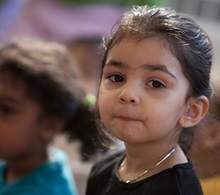 As we discussed in our last blog posting, selecting the right preschool can be a difficult decision. The next 3 Steps to selecting the right preschool in Omaha, Nebraska.
As we discussed in our last blog posting, selecting the right preschool can be a difficult decision. The next 3 Steps to selecting the right preschool in Omaha, Nebraska.
- How old should my child be when she starts?
Most preschools in Omaha serve 3, 4, and 5-year-olds, with most kids beginning at age 4. (Some preschools will start accepting children at around 2 1/2, but that doesn’t mean your child will be ready when he reaches that age.) You can choose from a part-time schedule or a full-time one. Your choice will depend on your family’s situation — working moms might prefer five days a week — and on your child’s temperament.
Parents typically start investigating options about a year before they want their children to attend.
- How do I choose the right preschool and childcare in Omaha?
Research, research, research. First, decide on location (close to work or home?) and hours (half-day, two or three days a week, full-time?). There are programs at private schools, daycare centers, religious institution, state-funded schools, and cooperatives run by parents. Start by asking for recommendations from other moms. Next, check whether the schools are state-licensed, which ensures the facility meets safety requirements and has adequate staffing (visit naccrra.org).
Many states exempt religious-based preschools from all or some requirements — although many meet these standards anyway. In addition, many preschools now have Web sites that you should visit.
Call each preschool you’re considering and ask about its fees, admission policy, and curriculum. Once you’ve narrowed down your choices, schedule visits.
Most childcare centers run open houses during the winter. Also, meet with the director and spend time in a classroom to observe the teachers. Visit each school with your child and see how she responds to the classroom, the teachers, and the activities.
- What should I look for during a visit?
Check out the basics: Is the facility clean and safe? Keep your eye out for smoke detectors and first-aid kits. Is there a well-kept outdoor play area? Are there plenty of art materials, age-appropriate toys, and books? Are they in good condition? Is the atmosphere friendly and fun? Student work should be displayed in the hallways and around the classroom, hung at kid-level.
The classroom should have a variety of activity areas — a reading place, an art station with materials on shelves that kids can reach: a block corner, a puzzle area, and a place for naps. Children should not all be doing the same thing at the same time; they should be playing with toys or other kids but still well supervised.
Premier Academy offers preschool in Omaha, Nebraska. Our West Omaha childcare center has everything your child will need to become ready for the road ahead. Premier provides a place where your child can gain a sense of self, explore, play with her peers, and build confidence. We are not your ordinary daycare.
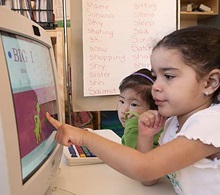 While it can be a difficult decision for many parents, choosing to put your child in pre-k daycare may provide benefits that you aren’t aware of. Not only is it necessary for many parents to be able to return to work, but it provides a lot of advantages for the child as well.
While it can be a difficult decision for many parents, choosing to put your child in pre-k daycare may provide benefits that you aren’t aware of. Not only is it necessary for many parents to be able to return to work, but it provides a lot of advantages for the child as well.
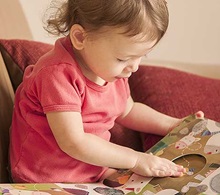 Child care is short-term care by someone other than a parent. There are two basic types of child care: individual and group.
Child care is short-term care by someone other than a parent. There are two basic types of child care: individual and group.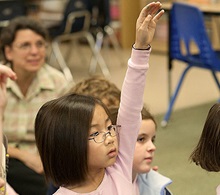 To assist you in finding the appropriate quality childcare,
To assist you in finding the appropriate quality childcare,  Choosing the proper daycare center for your child should be a carefully thought out and researched process. With some daycare centers being exceptional and some being just plain bad, it is important to pick a center that helps your child grow and develop his skills while also having fun.
Choosing the proper daycare center for your child should be a carefully thought out and researched process. With some daycare centers being exceptional and some being just plain bad, it is important to pick a center that helps your child grow and develop his skills while also having fun.  As we discussed in our last blog posting, selecting the right preschool can be a difficult decision. The next 3 Steps to selecting the right preschool in Omaha, Nebraska.
As we discussed in our last blog posting, selecting the right preschool can be a difficult decision. The next 3 Steps to selecting the right preschool in Omaha, Nebraska.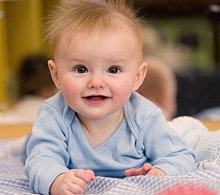 Selecting the right preschool can be a difficult decision. Is your child ready, are you sending your child to the right school? These are common questions & Premier can help! 4 Steps to selecting the right preschool in Omaha, Nebraska.
Selecting the right preschool can be a difficult decision. Is your child ready, are you sending your child to the right school? These are common questions & Premier can help! 4 Steps to selecting the right preschool in Omaha, Nebraska.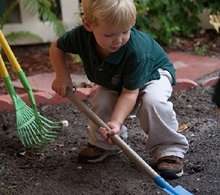 Working everyday learning into your household tasks can help your preschool children connect the importance of math, reading, geography, and simple reasoning to their own lives.
Working everyday learning into your household tasks can help your preschool children connect the importance of math, reading, geography, and simple reasoning to their own lives.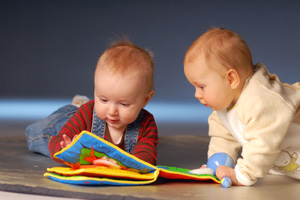 Infant Massage
Infant Massage The Importance of Finding the Right Child Care for Your Infant
The Importance of Finding the Right Child Care for Your Infant